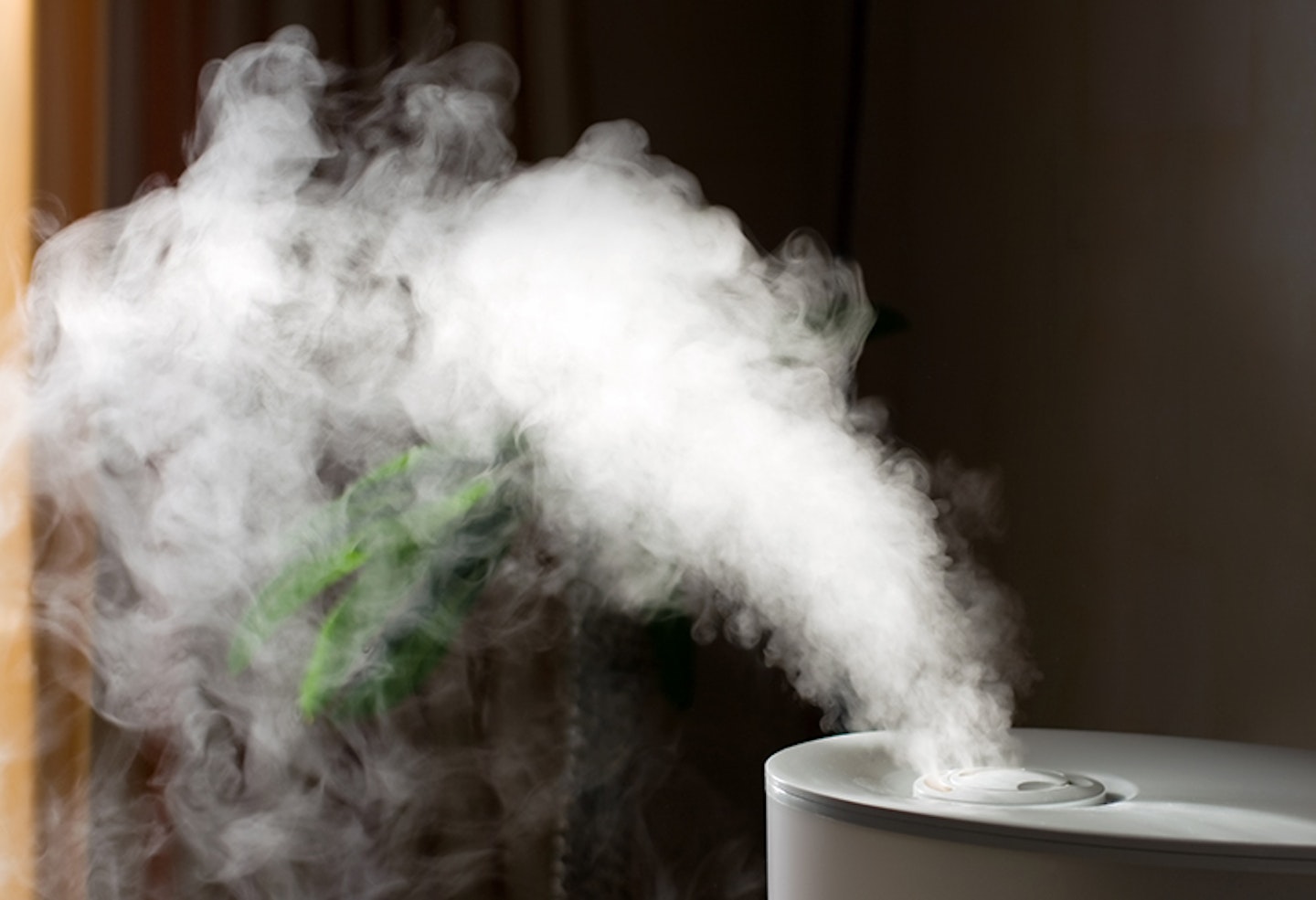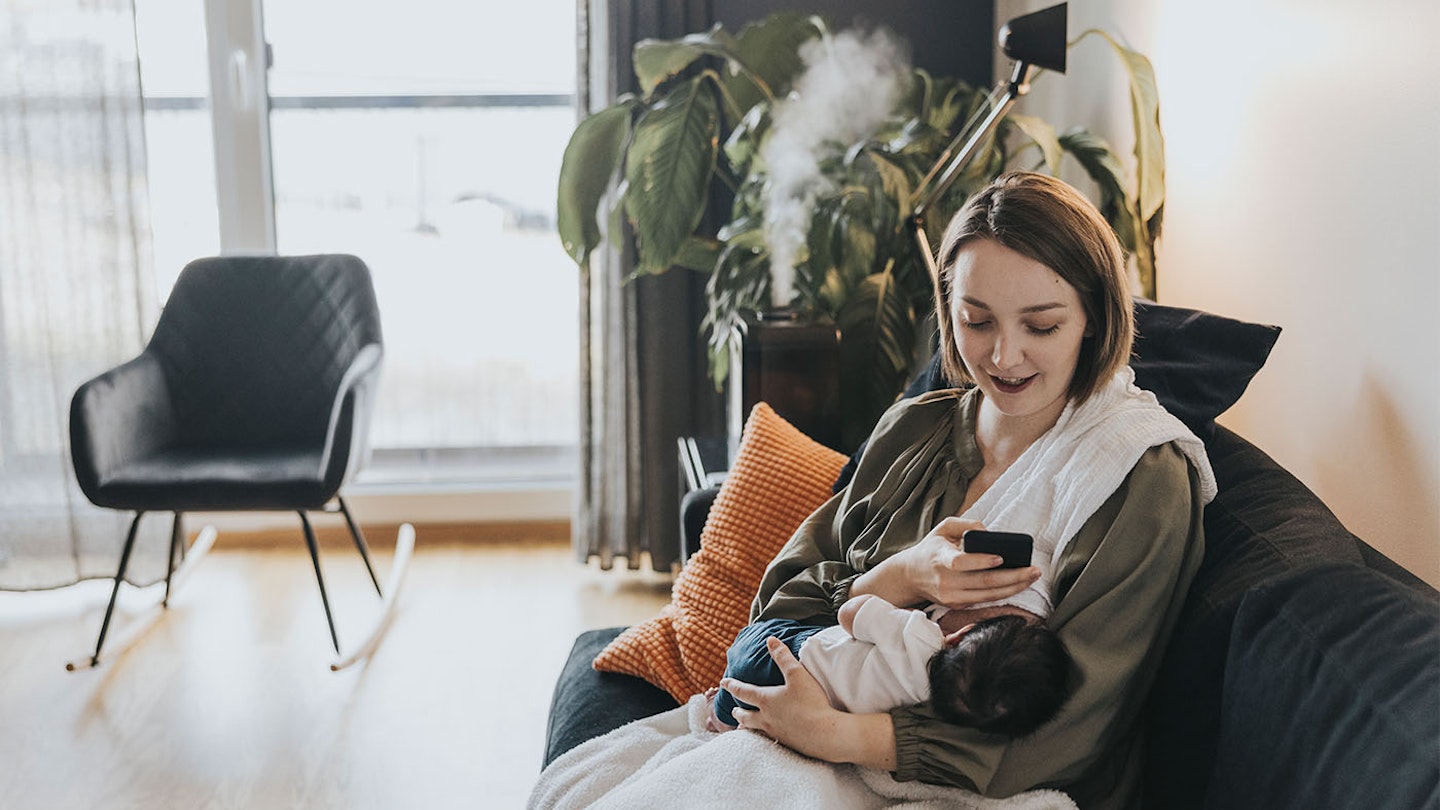We all know that babies require a lot of stuff, but there are certain products that can leave us all considering if we actually need them. One such product is a baby humidifier. So, if one of the many questions on your mind is "do I need a humidifier for baby?" we've got the answers for you.
Nobody wants their baby to be uncomfortable and if your baby is suffering in cold and flu season, a baby humidifier can help them to feel better. It works by converting water into a fine mist to increase the moisture in the air which can be beneficial to your child for a number of reasons. If you're scratching your head and wondering if you need a humidifier for baby then we're here to help.
How do I know if my baby needs a humidifier?
Like a lot of baby products, you and your baby might not necessarily require a humidifier and it certainly isn't one of the newborn essentials you'll need from day one. But there are a few scenarios where you might feel that it could be a good idea to check out the best baby humidifiers for your baby's nursery.
The low humidity we often get in winter combined with central heating can create a lack of moisture which drys out our throat and nasal passages and can lead to cough and cold symptoms. Along with a sore throat and cough, your baby may also experience dry and itchy skin as well as chapped lips.
Are humidifiers good for babies?
These discomforts can make it harder for your baby to sleep, leading them to become upset and then wake you up. A baby humidifier counteracts all of these by putting moisture back into the air, stopping your child's skin from drying out and loosening mucus to decrease nasal congestion, so it's one of the ways you can unblock your baby's nose.
Because they let out a low humming or whooshing noise, many baby humidifiers also act as white noise machines for little ones. However, if you want this benefit but don't need a humidifier, you'd be better off buying a white noise machine instead.

Are humidifiers safe for babies?
While humidifiers tend to be safe for babies, there are some things you need to keep in mind to keep your baby safe.
Risk of mould
Because humidifiers add moisture to the air, they can create mould. As well as adding moisture to the air, they can also grow mould inside the system which can potentially be sent out into your baby's room. You can avoid this by cleaning the humidifier regularly to make sure there's no mould build-up.
If you're worried about mould or excess moisture in your home, you could consider one of the best dehumidifiers for families.
Scalding risk
You can buy two different types of humidifiers. One uses cold mist and the others use warm mist. For young children, it's safer to use one with cool mist as warm mist humidifiers pose a scalding risk.
Whether you're using a warm mist or cold mist humidifier, always make sure it's kept well out of reach of children and that they can't reach the cable and pull it down.
Avoid essential oils
If your baby is suffering from a cold with congestion, then it might be tempting to add essential oils to help clear their nose, but this isn't generally necessary or advised for a humidifier. You can use these oils with a room diffuser instead but again, be careful to keep these out of reach of children.
Distance
It's best to keep a humidifier around 6 feet from your baby's cot so that the fine mist can't land on them. This also has the benefit of keeping it far enough away from them so they can't reach the cord or the humidifier.
Choosing the best humidifier for your baby
If you're planning to buy a humidifier, there are a few things to consider before you press 'buy'. As well as looking for a cold mist option, you'll want to make sure it's the right size for your baby's nursery so it adds the right amount of moisture to the room. You should also look for one with an automatic shut off so it stops when the tank is empty of water. As mentioned above, it's also important to clean humidifiers regularly so it's best to buy one that's easy to clean.
Frequently asked questions
Can I put VICKS in my humidifier?
VICKS VapoRub is a popular option to help relieve cold symptoms in adults and children over two years old, however, it should not be added to a humidifier. This is because it contains petroleum jelly which can be flammable and may cause your humidifier to start malfunctioning.
Can you leave humidifier on all night in baby room?
Generally it's ok to leave a humidifier on all night as long as you monitor the moisture in the room and don't let it get too damp. You should also buy a humidifier with an automatic shut off so that it turns off if the water is empty.
Do newborns need to sleep with a humidifier?
No, a humidifier certainly isn't one of the newborn essentials you'll need. It's something you could consider if your baby has a cold but newborns don't need to sleep with a humidifier.
Are humidifiers worth it for babies?
If your baby has a stuffy nose and a cold you might find that a humidifier will help clear their airways. Some parents would argue that a humidifier is worth it for the extra sleep you might get but it's not an essential item.
A journalist since 2015, Emily Gilbert is the Features & Reviews Editor for Mother&Baby and has written for the website and previously the magazine for seven years. First-time mum to Theodore, Emily writes about everything from the top baby products to pregnancy, fertility and maternal mental health. Specialising in product reviews, Emily is the first to know about all the exciting new releases in the parenting industry.
